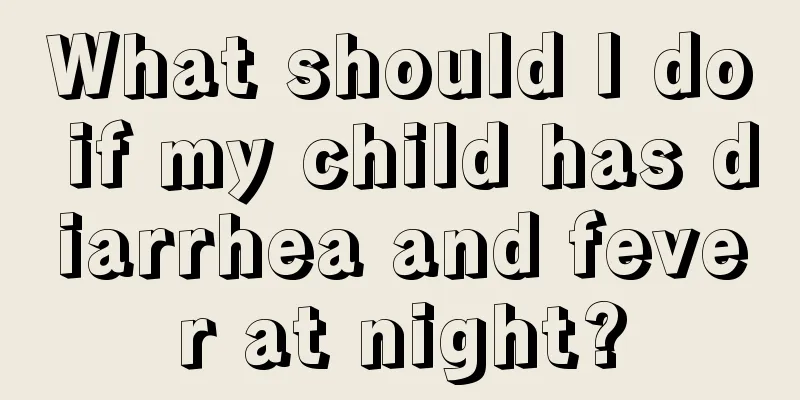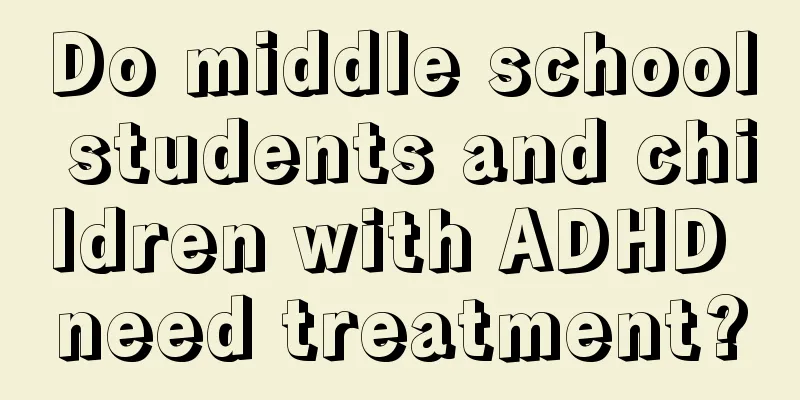What should I do if I have a fever after taking the group A meningococcal vaccine?

|
Direct injection of group A meningococcal vaccine can effectively reduce epidemic meningitis. However, many children will experience some adverse reactions - fever - after receiving group A meningococcal vaccine. Experts tell us that this situation is normal and the high fever will usually disappear quickly. However, if the baby's high fever persists, it is best to send him to the hospital for examination in time after 24 hours to avoid worsening of the condition. Vaccination reactions after vaccination are a relatively common phenomenon. You should make sure your baby drinks plenty of water. If the fever exceeds 38.5 degrees, you can use antipyretic drugs such as Motrin or Nimesulide granules and observe. It will usually get better soon, so don't worry too much. What is group A meningococcal vaccine? Group A meningococcal vaccine is a vaccine that prevents epidemic meningitis. After vaccination, this vaccine can induce the body to produce humoral immune response and is used to prevent epidemic meningitis caused by group A meningococcus. Since the use of meningococcal vaccine, it has played a very important role in controlling and reducing the spread of meningococcal disease, and the epidemic has been basically controlled. Moreover, the vaccine is mainly used for children aged 6 months to 15 years. Group A meningococci are cultured, purified, and then polysaccharides are obtained and refined. After freeze-drying and passing sterility, safety, toxicity tests and molecular weight determination, it becomes a qualified vaccine. Its properties are relatively stable and its shelf life is 2 years from the date of freeze-drying. It should be used within the shelf life indicated on the box label or (bottle label). National immunization program vaccines added at the provincial level. Vaccination schedule for group A meningococcal disease The meningococcal vaccine needs to be administered three times in total, with a certain interval between each administration. But do you know when the first and second administrations are given? According to experts, the vaccination time cannot be advanced, but can be postponed. According to the procedure, the group A meningococcal vaccine should be completed within 6-18 months, and it is sufficient to complete the two injections before 18 months. The second dose should be given three months after the first dose. However, if it cannot be given on time due to various reasons, it can be postponed. When the baby is 3 years old, the vaccine needs to be injected again, and this time is the third time. Adverse reactions to group a meningococcal vaccine After receiving this vaccine, some babies' bodies may not adapt and will have some mild reactions, but generally there are no serious local or systemic reactions. This adverse reaction is a marginal effect caused by the vaccine and has nothing to do with the original intention of the vaccine to produce immunity. Vaccine adverse reactions are any unfavorable reactions that occur after immunization. The meningococcal vaccine does not have side effects on every child. However, some children may develop local redness and nodules after vaccination, and systemic reactions may include low-grade fever and occasional allergic reactions. Generally, fever is low fever, and very few are high fever, so there is no need to worry. You can only use physical cooling, such as ice cubes or cold towels to cool down, and you will be fine after the reaction. Most recipients experience symptoms 10 to 24 hours after vaccination and generally recover on their own within 1 to 2 days. Before receiving the group A meningococcal vaccine, you should also clarify your situation to see if you are suitable for the injection to avoid serious adverse reactions. Among them, patients with central nervous system infection cannot be vaccinated; people with a history of high fever convulsions cannot be vaccinated; people with serious heart, liver, and kidney diseases, especially those with organ dysfunction, cannot be vaccinated; people with mental diseases and mental illness cannot be vaccinated; people with a history of allergies cannot be vaccinated; if you have a fever or are in the acute stage of the disease, you should not be vaccinated with the meningococcal vaccine, and you can wait until recovery to get the booster shot. |
<<: Fever after taking group A meningococcal vaccine
>>: Will short legs affect the growth of children's height?
Recommend
What should girls pay attention to during their menstrual period?
When a girl's first menstrual period comes, s...
Baby has a high fever of 40 degrees and cold hands and feet
We all know that babies have very poor resistance...
How to make nutritious porridge for children
Babies drink breast milk or formula when they are...
Why do children eat boogers?
What mothers are very frustrated and don't wa...
What's wrong with the white spots on the child's face?
White spots are not unfamiliar to many people. Th...
What should children with pneumonia eat?
Pneumonia can be said to be a common disease in h...
What causes children to stutter? Parents must read
If a child's stuttering is not corrected in t...
What if a child says he has chest pain that goes away after a while?
We all know that if the elderly have chest pain s...
How to treat mycoplasma pneumonia in children?
Generally, children will have troubles after bein...
What is the reason for children to urinate less
Many parents will find that their children do not...
What should we do if children suffer from heatstroke?
In the hot summer, the temperature is relatively ...
What fruits are good for children with anemia?
Nowadays, everyone can feel that money is getting...
What medicine should a child take if he has diarrhea and vomiting?
We all know that children have relatively weak co...
One year old baby has bad breath
It is also common for children to have bad breath...
What is the cause of the hard lump on the child's wrist?
The physical health of children is very important...









